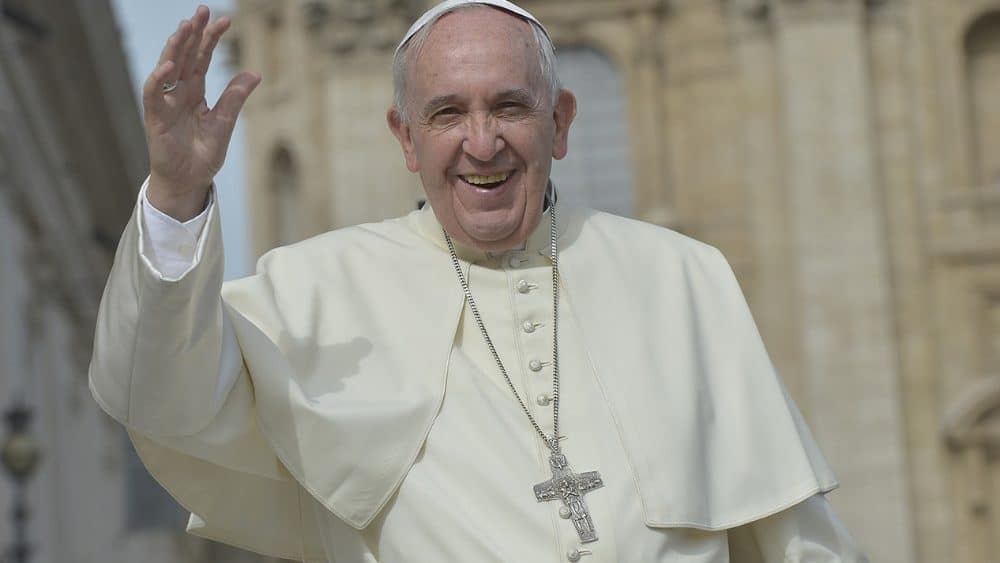Now attaining the age of 85 and showing signs of the physical infirmities of his age, Pope Francis continues to soldier on, still determined and indefatigable, guiding the ancient barque of Peter, that leaky vessel that is the Catholic Church, a vessel that never sinks or shipwrecks no matter the difficulties of the age, the crises it faces or the misdeeds committed by its crew.
When Jose Maria Bergoglio attended the 2013 conclave to elect a successor to Benedict XVI after the pontiff’s historic resignation, he could not have envisioned the complications old age would bring him once ushered to the helm of the Roman Catholic Church: a sexual abuse crisis that was raging, the COVID-19 pandemic still some years off, the persecution of Christians in barbaric manners recalling the worst excesses of the Roman Empire, corruption squabbles involving Vatican finances. All this and more would lay ahead of him. That Pope Francis has been able to weather and survive so many crises and so much upheaval on the world stage may well be ascribed in part to two long-standing customs he has managed to keep as pope: taking a long nap each day after lunch and spending an hour each evening in adoration before the Blessed Sacrament, the latter something the Pope has at times whimsically likened to a restorative nap. And this is the same Francis who has shown in his down-to-earth style that he is both very human and also a very divine shepherd, a pope who does not mind smelling the sheep whether milling among the flock or ascending to the altar to celebrate the Holy Eucharist.
Against the backdrop of the myriad and grave issues confronting the Church today, it is not surprising that Pope Benedict called it quits due to a reckoning that dealing with such enormous challenges would require great physical stamina and the mental fortitude of a kind not possessed by many. But as far as stamina goes, Francis has it, and plenty. And he also is keenly aware of how to marshal his forces with strength and timing, to plant himself firmly on the ground, to master the situation, and to act at the right time.
With a great and multifaceted pope like John Paul II and a wise and prudent pope like Benedict XVI (both surely to become doctors of the Church one day), Francis did not have it easy following in such footsteps. But the Argentine pope was right on the mark from the first moment when he adopted the name of Francis. His model has been one of pure sanctity embodied in the humility of the poor, echoing the saintly mystic and friar of Assisi, in Italy, of centuries past, whose namesake Bergoglio embraced. In these years of his pontificate, Francis has offered the world a fresh-eyed vision of Catholicism, one that is deeply evangelical and based on the image of the merciful Christ, the Christ who goes after the lost sheep, who eats with publicans and sinners and who forgives prostitutes.
Pope Francis has been a great promoter of interreligious dialogue. He has tackled the issue of sexual abuse in the Catholic Church. And he has opened the Vatican to all, regardless of race, language, religion, or sexual orientation. He has placed women in high positions in the Roman Curia, criticized crass consumerism and savage capitalism, denounced wars, and officially declared the death penalty inadmissible. Throughout his pontificate, he has lovingly tended to those in prison, to the poor and the oppressed, and to otherwise defenseless immigrants and refugees. Then, too, he has promoted ecumenism and peace and will be remembered in history for his journey to the island of Lampedusa to meet fleeing African migrants, or his brave trip to Iraq, ignoring the advice of false prophets heeding him to stay home.
This pope has become the great theologian of the garden God has provided for man. Yet he has known how to tune out the thunderous noise of the world with the eloquent silence of the Spirit. And he has proven capable of surprises. For one, I never thought Francis would be the kind of pope to write encyclicals. Gladly, I was proven wrong. Laudato si (May 24, 2015) and Fratelli tutti ( October 3, 2020) are two master jewels called to survive for centuries. For their great clarity and their immediate practical applications, both join in the Top Ten of the social teachings of the Catholic Church.
I believe, however, that the best of Francis’s pontificate is yet to come. Francis will go down in history as the pope of synodality, that difficult word he likes to pronounce so much and which is destined to mark the latter stages of his pontificate. It is synodality, that search for a common road, through a collegiality among the clergy and lay Catholics alike, that will certainly be a high point for this pontificate. For Francis, “synodality expresses the nature of the Church, its form, its style, its mission” (Address to the faithful of the Diocese of Rome, Sept. 18, 2021).
Synodality is the proper way of governing the Church in fraternal communion, in open, sincere, and committed dialogue. It is the way set out by Saints Peter and Paul; It is the way to walk in a Church guided by the Holy Spirit, who is the great protagonist of history. And history – all history – is as Francis insists a living fire that invites us into contemplation of God and the service of others, into overcoming paralysis and rigidity of mind and spirit. The Argentine pope knows what he wants and where he is going and he is not afraid, not even to make mistakes. This is because he knows himself to be a son of God and an instrument in His hands. Therein lies the strength of Francis. And therein, one finds the true spiritual fruitfulness of his pontificate. Happy Birthday, Holy Father!










